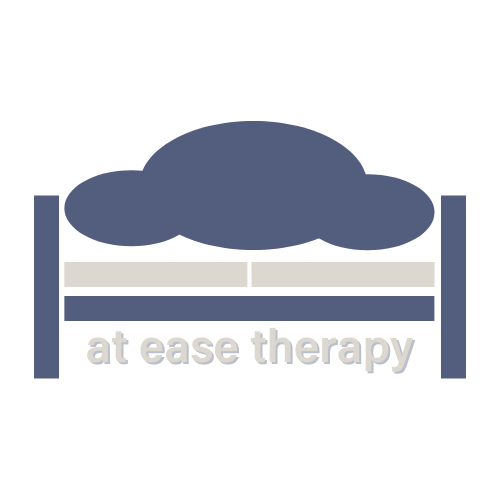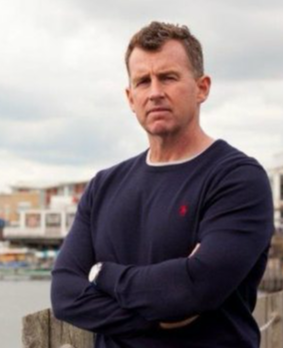Is it Okay to Not Be Okay?
Two weeks ago Twitter and Facebook were covered with headlines that Chester Bennington, the front man of rap-metal group 'Linkin Park' had died by manner of suicide. Having been a small time fan of the group in my teens and twenties I found this news quite affecting. I'm also not sure if the fact that my own preference towards the group and thus that of my friends created an echo chamber whereby I was actually more likely to be presented with the news in a much more full on manner. However Bennington has previous spoken about his battle with addiction and mental health [1].
The same week also saw Olly Alexander, lead singer of 'Years & Years' present a documentary on BBC Three entitled 'Growing Up Gay', in which he spoke frankly about his own struggles with mental health, self harm, and an eating disorder. The documentary is available to watch on iPlayer for another five months [2]. Also hitting headlines in the same week was Nigel Owens, the Welsh rugby referee, speaking about his own continuing struggles with bulimia [3].
These three men in the public eye; two singers, two gay, two having spoken about eating disorders, one having died by suicide, and one having previous attempted suicide in the past. All three having been open about their mental health struggles. But this week has brought attention to the question to whether men are being failed when it comes to mental health.
Suicide is the leading cause of death in people aged between 20 and 34 in the UK, and across Europe there are 55,000 suicides every year [4]. This equates to one person dying from suicide every two hours. Of these suicides, there are four men for every woman dying. When it comes two mental health diagnoses though, of the one in every six adults in UK who have a diagnosis, women are twice as likely as men to have depression. The reverse is true of children [5].
It's not only in those seeking help where we find a disparity in the mental health field. According to a BACP survey of its members in 2014, 84% of counsellors and therapists who are BACP registered are female [6]. The UKCP (United Kingdom Council of Psychotherapy) carried out a similar survey in 2016 and found that 74% of its members are female [6].
It appears that there is sufficient stigma or impediment to prevent men from working with mental health, both their own and as a creep supporting others. So what is it that causes men to be discouraged from engaging with mental health? I fear this question will remain largely rhetorical here, as important as it is. It is something that is largely studied and talked about still when it comes to counselling academia. However, there seems to be something about traditional ideas of masculinity that is ultimately damaging for the wellbeing of men [7].
I believe I can be fairly confident that we are all familiar with phrases such as "man up", where we are slowly taught that our emotions are shameful. Men are expected to deal, to just move on, to get it done. The expectation that is we cannot just do without being affected or impacted we are not good enough. Men are socialised to be less likely to seek help when they are struggling, and this may intensify the issue. It also stands to further isolate men socially and increase the barrier to seeking help. I have previously written about the Disney PIXAR film 'Inside Out' highlights the importance of allowing traditionally 'negative' emotions [8], and I feel a similar dynamic is present in how men are disallowed emotions generally.
So, we are discouraged from seeking help, and this makes it harder for us to feel like we are allowed to need help. Then, when we feel trapped by our mental health and looking for a way out, death can begin to feel like the only route to not feel stuck in the emotional pain. Therapy can offer a safe space to begin to slowly and safely engage with emotions that have not been allowed in years; the difficulty, of course, is that the people who are perhaps most in need of this feel the least able to engage with it.
As a professional, as a person, as a man this is ultimately frustrating. I wish I had a conclusion to draw; that I could synthesise some sound bite or a take home message. Instead I think this may be outreach to those who are already able to engage with the realm of mental health, a passing of a mission to make it okay to not be okay. But, if you are struggling but feel that it's difficult to been seen as not coping, you can get support anonymously. Samaritans are a listening service you can call anonymously and for free 24 hours a day seven days a week on 116 123.
References:
Chen, J. (2017). Chester Bennington on depression: My mind 'is like a bad neighborhood'. Rollingstone.com. http://rol.st/2volBta
Growing Up Gay (2017). BBC Three Television. http://bbc.in/2tmF3H7
Owens, N. (2017). International ref Nigel Owens' ongoing bulimia battle. BBC.co.uk. http://bbc.in/2uoiIGz
Office of National Statistics (2015). 'What do we die from?' http://bit.ly/2vsUKgE
Bell, A. (2016). With men less likely to seek help with their mental health, access must be made easier. HuffingtonPost.com. http://bit.ly/2fIvIys
Brown, S. (2017). Is counselling women's work? Therapy Today, Vol. 28 (2), pp 8-11. http://bit.ly/2uVMHHx
McCarthy, K. (2016). ‘Toxic masculinity’ leads to mental health problems for men. Healthline.com. http://bit.ly/2f7YpcV
Thomas, A. (2015). Pixar: Shining a light on the importance of traditionally ‘negative’ emotion. EaseTherapy.uk http://bit.ly/2w5PNY7





